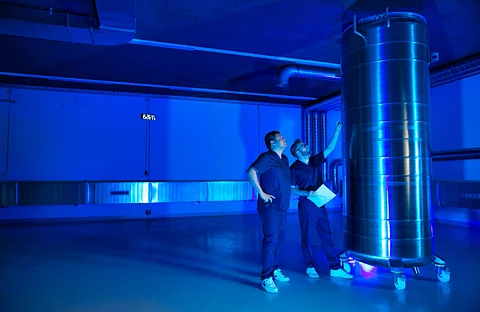
- NEWS
- the EDIT
- COMMENTARY
- BUSINESS
- LIFE
- SHOW
- ACTION
- GLOBAL GOALS
- SNAPS
- DYARYO TIRADA
- MORE

Preserving deceased bodies at cold temperatures for possible future revival was once a concept only possible in science fiction. But with advancements in medical technology, it’s now a step closer to reality — a potential to witness the future years or even centuries after death. This is what the Germany-based lab Tomorrow Bio hopes to achieve through human cryopreservation: the belief that future technologies may one day revive individuals and treat the causes of their death.
Tomorrow Bio offers human cryopreservation services, a process that involves placing the body in liquid nitrogen using a specialized cryoprotectant solution. This solution prevents the formation of ice crystals, which could damage tissues, so the body does not freeze like meat in a refrigerator. Patients don’t have to worry about power outages, either — the process does not require electricity, allowing for long-term preservation.
Before reaching this level of medical and technological innovation, several experiments were conducted, including cryopreserving embryos, sperm, and skin. Notably, one study successfully cryopreserved a rabbit kidney that, once rewarmed, became fully functional.
Tomorrow Bio’s services are not limited to Germany. In 2024, the company launched its cryopreservation program in the U.S., with plans to expand it nationwide by the second half of the year. As of 2023, 500 individuals have signed up to undergo cryopreservation, holding onto the hope of a second chance at life — even without any guarantee that revival is possible.
However, the service comes at a price. Patients must pay €50.00 or P3,320.50 per month as a membership fee until cryopreservation occurs. There’s also a standby and storage option, priced at €200,000.00 (P13,282,000.00) for full-body preservation and €75,000.00 (P4,980,750.00) for brain-only preservation. These must be paid while the patient is still alive.
There is no time limit on how long a body may remain preserved, ensuring that even as the years pass, the body will not deteriorate.
